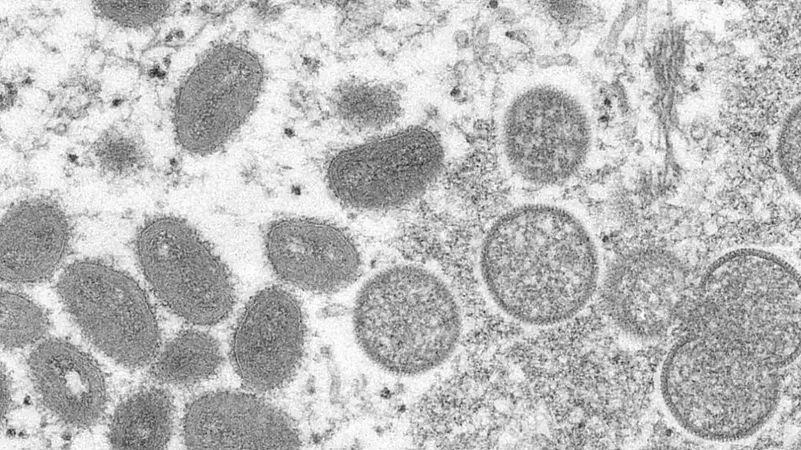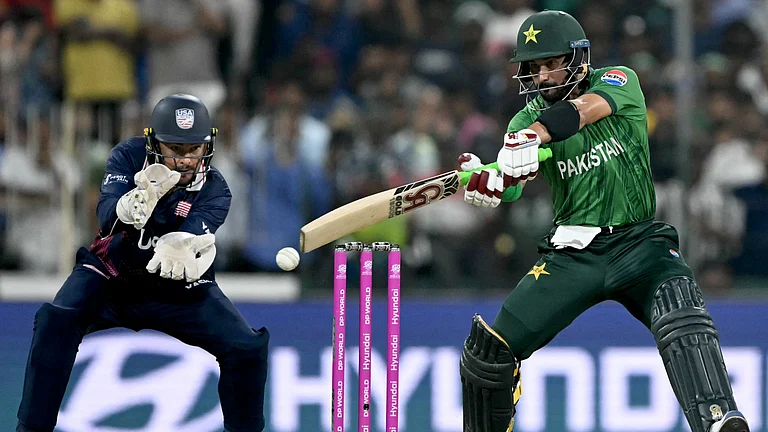With two confirmed cases of monkeypox in the country being reported from Kerala, health authorities in the state have increased measures to prevent a potential outbreak. India's first case was reported on July 14 in a man travelling to Kerala. A 31-year-old man from Kannur in Kerala, who returned from Dubai, tested positive for monkeypox on July 18, making it the second confirmed case of the disease in India.
Following this, a high-level central multi-disciplinary team of experts has been deployed to assist the southern state's health department in its outbreak control and containment efforts. Kerala also has taken several measures and issued a fresh set of guidelines to deal with the disease.
Here's all you need to know about monkeypox and whether you should be worried about another potential outbreak
Kerala issues SOP for Monkeypox
In keeping with the latest developments, the state government on Wednesday issued standard operating procedures (SOP) for isolation, sample collection and treatment of those infected or showing signs of the same. Kerala Health Minister Veena George, in a release, gave details of the SOP which are to be followed by all private and government hospitals. She said that any person who has traveled in the last 21 days to a country where monkeypox has been reported and is having red spots on the body along with one or more of the other symptoms, like fever, headache, body ache or fever, should suspect infection by the virus.
The minister, in the release, further said that risk of infection is high through close physical or direct skin-to-skin contact or sexual intercourse with an infected person or by touching their bedding or clothing.
Karnataka on alert
The Dakshina Kannada district health department in Karnataka has also sounded an alert after one of the two cases of monkeypox in Kerala was a man who travelled to Kerala via Mangaluru International Airport (MIA) and later detected with the disease. A senior official in Bengaluru said the officials at district level have been apprised about the measures taken to check monkeypox cases. The districts such as Mysuru, Chamarajanagar, Kodagu, Mangaluru and Udupi have been asked to be on the high alert.
"Already, the central government's guidelines have arrived. Shortly, the state government will also release its own set of guidelines," an officer told PTI.
Telangana on alert
Telangana Health Minister T Harish Rao on Monday said the state government is alert over monkeypox though no cases or even suspected cases have been reported in the state.
Apart from setting up a special centre for diagnosis at the state-run Gandhi Hospital, the Fever Hospital of the government has been designated as a nodal hospital for immediate treatment of suspected cases, he said.
He held a video conference with doctors of TVVP (Telangana Vaidya Vidhana Parishad) and others, an official release said.
What is monkeypox?
According to the World Health Organisation, monkeypox is a viral zoonosis (a virus transmitted to humans from animals), with symptoms similar to those seen in the past in smallpox patients, although it is clinically less severe. With the eradication of smallpox in 1980 and subsequent cessation of smallpox vaccination, monkeypox has emerged as the most important orthopoxvirus for public health.
Monkeypox typically manifests symptoms like fever, rash and swollen lymph nodes and may lead to a range of medical complications. It is usually a self-limited disease with symptoms lasting from 2 to 4 weeks.
Monkeypox a global threat?
Cases of monkeypox have been increasingly reported across the world, especially since May this year. Those at highest risk from the communicable disease include gay and bisexual men who are typically affected with symptoms like genial ie anal rashes once infected, often being mistaken for other common sexually transmitted diseases like syphilis or herpes.
There have been escalating monkeypox outbreaks in over 50 countries in recent months. In June, a World Health Organization panel said the escalating cases should be closely monitored but so far, the outbreaks did not warrant being declared a global health emergency.
A statement by the WHO emergency committee said many aspects of the outbreak were “unusual” and acknowledged that monkeypox — which is endemic in some African countries — has been neglected for years.
“While a few members expressed differing views, the committee resolved by consensus to advise the WHO director-general that at this stage the outbreak should be determined to not constitute” a global health emergency, WHO said in a statement.
WHO nevertheless pointed to the “emergency nature” of the outbreak and said controlling its spread requires an “intense” response.
The committee said the outbreak should be “closely monitored and reviewed after a few weeks.” But it would recommend a re-assessment before then if certain new developments emerge — such as cases among sex workers; spread to other countries or within countries that have already had cases; increased severity of cases; or an increasing rate of spread.
However, in July, WHO's Europe chief warned that monkeypox cases in the region had tripled in the last two weeks and urged countries to do more to ensure the previously rare disease does not become entrenched on the continent.
Additionally, African health authorities said they are treating the expanding monkeypox outbreak as an emergency, calling on rich countries to share limited supplies of vaccines to avoid equity problems seen during the Covid-19 pandemic.
Should India be worried about a potential outbreak?
While the rising number of monkeypox cases are a cause for concern, health officials remain confident that monkeypox will not be another Covid-19 like pandemic and will affect only those in close contact with the infected person.
Experts feel that monkeypox is a self-limiting disease and is not likely to leave many long-term harmful effects on a patient’s health or cause severe illness in patients with superior immunity, in case of an infection.
Moreover, The Covid-19 pandemic has taught us the importance of vaccines. And since Monkeypox is close to the Smallpox virus family, researchers have hopes that the vaccines developed for preventing smallpox can also prevent monkeypox. Previous data collected from African nations suggest that 85 per cent of smallpox cases could be prevented with the use of Smallpox vaccines. In 2019, the US Food and Drug Administration approved Jyenneos, a smallpox vaccine manufactured by Danish pharmaceutical firm Bavarian Nordic, as effective for the prevention of both smallpox and monkey pox.
Indian authorities spring to action
Nevertheless, the Union health ministry has taken a number of steps to minimise the risk of disease importation as well as to strengthen requisite public health and clinical interventions for managing monkeypox, Minister of State for Health Bharati Pravin Pawar told the Rajya Sabha on Tuesday.
According to the World Health Organisation, as on July 4, 4,920 laboratory-confirmed cases of monkeypox have been reported from the European region, which is seeing an increasing trend of cases. Most of these cases are being reported from Spain, the United Kingdom, Germany, France and the Netherlands, Pawar said in a written reply.
As a key measure to contain the disease in the country, Pawar said all airport and port health officers have been instructed to remain vigilant and rigorously screen incoming international passengers.
The NIV Pune (BSL-4 laboratory) under the Indian Council of Medical Research has been designated as the referral laboratory for testing of suspected cases. In addition, 14 other ICMR-VRDL network laboratories have been operationalised to undertake diagnostic testing for monkeypox.
Instructions on sample packaging and transport have been shared with all states and union territories, she said.
The State and District Surveillance Officers (SSOs) under Integrated Disease Surveillance Programme (IDSP) of all states and union territories have been instructed to intensify surveillance activities for monkeypox.
The Ministry of Health has prepared and circulated to all stakeholders 'Guidelines on Management of Monkeypox Disease' covering all aspects to manage the disease, including case definitions, surveillance strategies, clinical management, infection prevention and control and risk communication among others, the minister said.
The guideline has also been made available on the Union health ministry's website.
The Union Ministry for Health and Family Welfare interacts with all states and union territories through video conferencing as well as formal communication and has advised them to undertake requisite public health actions.
(With inputs from Agencies)


























